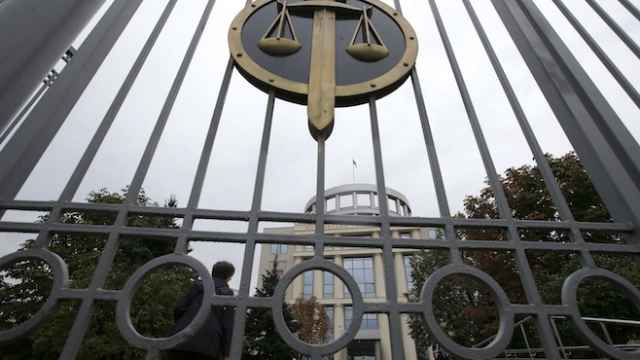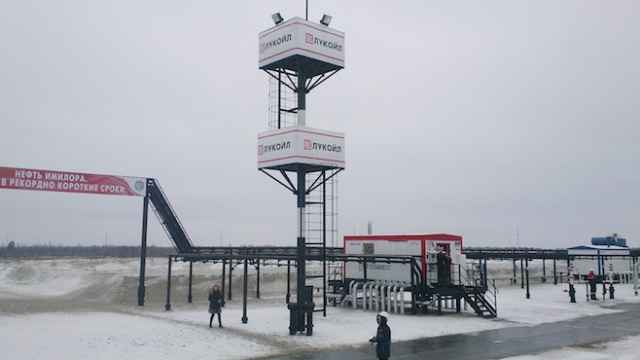Lawmakers have asked Russian Prime Minister Dmitry Medvedev to postpone changes to the country's oil tax regime that may lead to a spike in gasoline prices, Ivan Grachyov, head of the lower house of parliament's energy committee, said Wednesday.
"The letter to the prime minister was sent last week. We asked him to postpone the changes in these hard times. If the measures are introduced, the price of gasoline may jump as much as 20 percent," Grachyov told Reuters.
The changes, known as the "tax maneuver," foresee cuts to oil export duties and an increase in the mineral extraction tax, which could ultimately lead to increases in gasoline prices for consumers.
The price of gasoline in Russia has already risen by more than 9 percent in January-October, more than the 7.6 percent increase for the whole of 2013, fueled by higher inflation and a weaker ruble.
Adoption of the tax changes, which are expected to be enforced after Jan. 1, 2015, has met with opposition from crude oil producers, some of which have said they will negatively impact oil production.
The Energy Ministry, which sponsored the initiative, has argued the oil tax changes strike a "golden mean" between the industry's investment needs and budget priorities.
Russia's lower house of parliament, the State Duma, approved the changes to the tax regime last month in a first reading. The second, main reading is scheduled to be held later this month.
The country's system of oil taxation means that oil companies have been reluctant to invest in gasoline production because of high export duties, which are in place to protect supplies for domestic car users.
Grachyov said the cut in oil export duty will lead to companies "shifting the tax burden to consumers."
Analysts say the companies with the highest exposure to the refining sector, such as Bashneft, Gazprom Neft and LUKoil, will be the biggest losers from the tax changes.
A Message from The Moscow Times:
Dear readers,
We are facing unprecedented challenges. Russia's Prosecutor General's Office has designated The Moscow Times as an "undesirable" organization, criminalizing our work and putting our staff at risk of prosecution. This follows our earlier unjust labeling as a "foreign agent."
These actions are direct attempts to silence independent journalism in Russia. The authorities claim our work "discredits the decisions of the Russian leadership." We see things differently: we strive to provide accurate, unbiased reporting on Russia.
We, the journalists of The Moscow Times, refuse to be silenced. But to continue our work, we need your help.
Your support, no matter how small, makes a world of difference. If you can, please support us monthly starting from just $2. It's quick to set up, and every contribution makes a significant impact.
By supporting The Moscow Times, you're defending open, independent journalism in the face of repression. Thank you for standing with us.
Remind me later.






